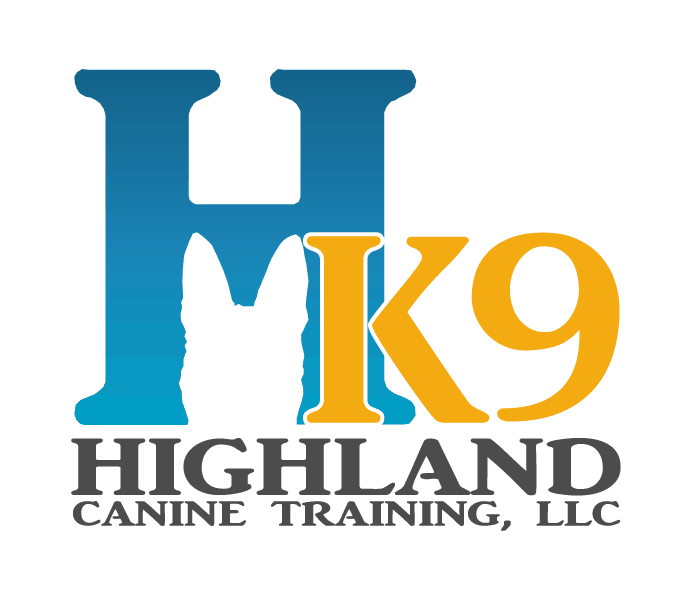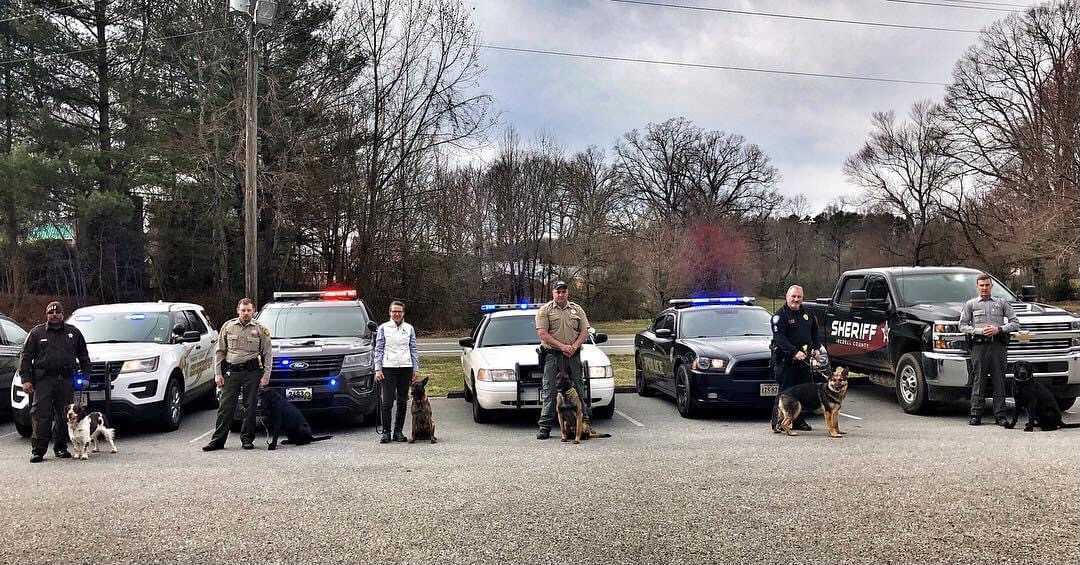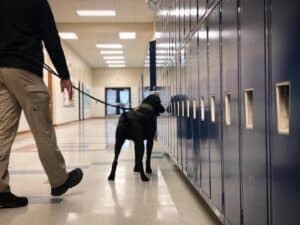Setting up a new K9 team for success is incredibly important. Whether it is a new K9 being added to a department, or an existing dog being paired with a new handler, it is vital that the two learn how to effectively work together. Attending a K9 handler program increases the likelihood of successful implementation when out in the field or on the streets.
Receiving comprehensive handler education and training is a key component of the success of any K9 team. But how can you compare one K9 handler program with another? What are the key things to look out for before choosing a course?
In this article, we have compiled five key factors to consider when signing your K9 team up for a handler training course.
1) How long is the course?
Prior to signing up for a K9 handler course, it is important to know how long the course will run for. While it can be a challenge to find coverage for the handler while they are gone, it is incredibly important that the handler is comfortable working the dog in every discipline of their training prior to graduation.
How much the handler will actually need to learn will vary, depending upon the disciplines the K9 is trained for. The handler needs to have enough knowledge from the program to ensure that their K9’s training is not only maintained, but continues to improve over time. Without proper understanding of how dogs learn – or the training process – handlers will not be able to solve problems effectively, which may result in reduced success operationally.
At Highland Canine Training, we run three-week handler schools for single purpose dogs and four weeks for dual-purpose K9s. Both schools have online classes which are required to be completed prior to attending in-person – this ensures that handlers are set up for success when they arrive for their training.
2) How much training does the K9 have prior to handler school?
Prior to selecting a K9 handler course – whether it is for an existing K9 who is teaming up with a new handler, or training for a new dog altogether – it is vitally important to fully understand what type of training and experience the dog will have prior to handler school.
If a dog is not trained before the program begins, and is instead trained throughout the course, the dog will only have a few weeks of experience working prior to graduation. This lack of time obviously reduces the reliability and efficiency of the K9.
Simply put, when it comes to K9 training, there is a clear correlation between the amount of time spent training and how effective the K9 is. The more hours spent training, the better equipped the K9 is to perform. Just like humans, the capability of a dog improves with experience. With more practice comes more reliability. Looking for a dog that is fully trained prior to school will mean that your handler spends less time teaching the dog, and more time actually learning how to handle and read the dog in real-world situations.
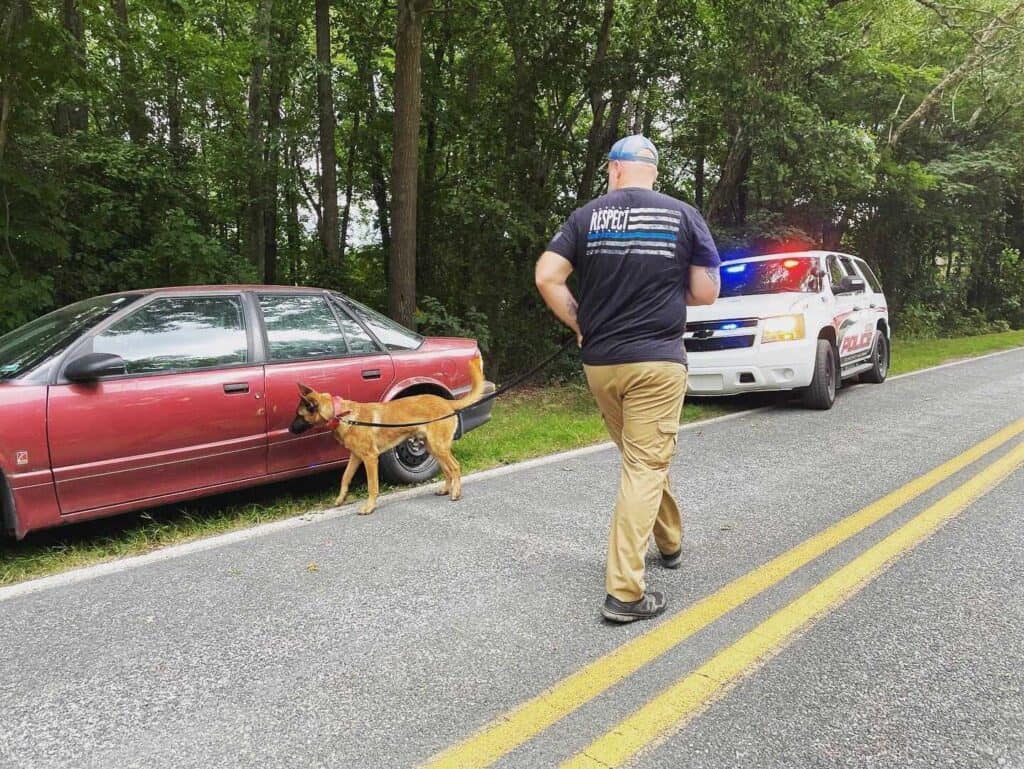
3) What will the handler learn while attending school?
It is incredibly important to understand what the handler will be taught during the course. Some key questions to consider include:
- Will there be time spent on classroom theory and hands-on training? What is the split?
- Typically, how many hours are dedicated to hands-on training?
- Does the handler school provide thorough details of their curriculum in advance?
Handlers should be graduating with an understanding of how to read their dog when it is working trails and narcotics, as well as how odor may move and be affected by the environment. Handlers should also have knowledge of how to keep effective training records and case law prior to working with their K9 in operational situations. All too often, great work in the field can be wiped out by ineffective recordkeeping.
How to achieve all of this? We have found the most effective learning method is a mixture of hands-on training and classroom time, thus ensuring handlers learn as much as possible about how to work with their K9 partner effectively. At Highland Canine Training, we have handlers watch a series of online classes prior to handler school, so that the time at school can be predominantly focused on hands-on training.
4) What is the goal for K9 teams during the program?
Different K9 teams will have different goals and aspirations from their handler school. It is vital to consider beforehand what the goal is for your particular K9 team. This will ensure the training carried out will be tailored to their needs and will ultimately lead to more success when the team moves into an operational scenario.
For example, some handler schools are solely dedicated to the training process for a green dog. This is a poor use of the handler’s time, as it reduces the amount of time available for setting up practice scenarios. No matter what the goal of the handler school is, the team needs to be prepared to work in many different environments to be truly prepared for active work – from working on blind trails to performing traffic stops out on the highway.
At Highland Canine Training, we focus on scenario-based training to ensure that our teams are set up to handle a variety of situations that may arise. Setting up mock traffic stops, tactical trailing and even mock court sessions allows teams to get valuable experience prior to returning to their department.
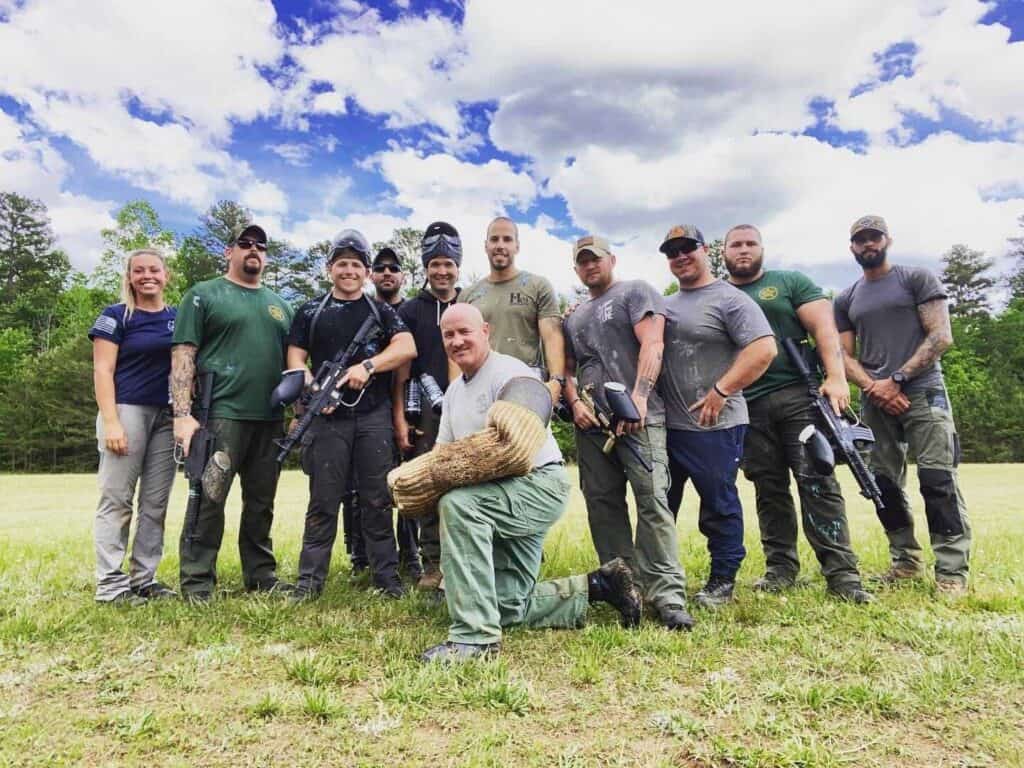
5) What experience do the course leaders have?
Understanding the credentials of the instructors you will be studying from is one of the most important factors to consider in a K9 handler course. For example, how much experience does the organization have? What are the backgrounds of the staff? How many K9 teams have they trained? What have previous K9 handlers said about their learning experience?
Just as when researching any product or service, it is important to do your due diligence. A K9 is a valuable asset for law enforcement – but only when trained and deployed effectively. Many of our team at Highland Canine have worked in law enforcement and have worked with countless police departments from across the globe over the past two decades. This makes us uniquely placed to offer K9 handler education that is comprehensive, detailed, and gives your team the knowledge it needs to perform effectively in the field.
In conclusion
There are many different K9 handler programs to choose from, and selecting the right one for your department and K9 team is an important decision.
Taking the time to consider the points listed in this article and thoroughly researching your options increases the likelihood of success for your K9 team. By completing a well-structured K9 handler training program, both dog and handler will be prepared for the tests they will undoubtedly face in the real world.
